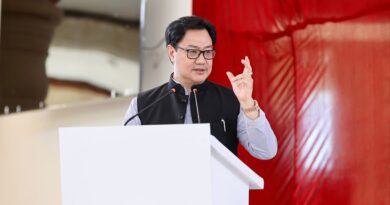Delhi HC Clarifies Succession Law—Grandchild Cannot Bypass Living Parent for Property
(By Syed Ali Taher Abedi)
New Delhi, September 14, 2025 – The Delhi High Court has clarified an important aspect of Hindu succession law, holding that a grandchild cannot claim a share in ancestral property during the lifetime of his or her parent.
The Plaintiff had submitted that “That the plaintiff being a legal heir has a right over the 1/2 undivided share of the Defendant No. 1 being her father. The suit property being the ancestral property acquired by the paternal grandfather of the plaintiff.”
Justice Purushaindra Kumar Kaurav delivered the ruling while dismissing a suit filed by a woman named Kartika, who had sought a share in property originally purchased by her grandfather.
Property Devolves Solely on Widow and Children
The court observed that upon the death of the grandfather, the property devolved strictly in accordance with Section 8 of the Hindu Succession Act, 1956. This section, which lays down the primary rules of succession, provides that the estate of a deceased Hindu male intestate devolves first upon his Class I heirs. In this case, the judge noted, the grandfather’s estate would pass only to his widow and children.
The Court observed that “On an appreciation of the provision under Section 8 of the HSA and the aforenoted decisions, it could be concluded that the share of defendant no. 1 in the suit property is his absolute property, and the plaintiff does not have any right in the same. The right asserted by the plaintiff is not recognized by the rules of succession as per Section 8 of the HAS”
Since Kartika’s father was alive, she did not qualify as a Class I heir under the statutory framework. “The granddaughter cannot independently claim any right in her grandfather’s property during her father’s lifetime,” the court held.
Granddaughter’s Claim Rejected
The High Court pointed out that a grandchild’s right to property through succession arises only after the death of the parent who is the actual heir. Until then, no independent title can be claimed over the property.
Accordingly, the plaint filed by Kartika was rejected under Order VII Rule 11 of the Code of Civil Procedure (CPC), which empowers courts to dismiss lawsuits that disclose no cause of action.
Legal Significance
The order reinforces the established principle that succession under Hindu law follows a clear hierarchy, ensuring that property devolves smoothly within the immediate family circle of the deceased. By specifically ruling that grandchildren cannot override the rights of their living parents, the judgment provides clarity in recurring disputes involving ancestral property.
Advocate Vineet Jindal argued the matter for Neena Jain defendant no.2
Legal experts note that such disputes often arise when grandchildren seek to secure claims in ancestral homes or landed assets despite surviving parents, leading to protracted litigation within families. The High Court’s ruling underscores that the law places first priority on the widow and children of the deceased, shutting out claims by grandchildren until the natural order of succession advances.




